Grace Wang readily stands out among all the other students studying level Bet Hebrew at the Hebrew University of Jerusalem. She was born in Taiwan to Chinese parents and she’s a grandmother in a class primarily populated by college students in their 20s. She’s also a Christian pastor who sends text messages to her Israeli friends in Hebrew.
To understand Wang’s interest in Hebrew, it helps to know something about her parents and her upbringing. Both parents were born in mainland China. In 1949, along with the original Republic of China government, her parents fled to Taiwan when they were still quite young, in order to escape the Chinese Communist Party takeover.
Wang is the oldest of three and says she was “raised full of love. There were no arguments or fights in my home.” Her father, now 93, grew up close to the Jewish community in Kaifeng, China and suspects that he might be Jewish.
“When he was very small, his mother told him to eat kosher food,” Wang related. “She told him not to eat fish without fins and scales.”
Wang’s mother, on the other hand, took her to a Catholic church on Christmas and Easter, and sent her to a Catholic school for girls in her middle school years. “I didn’t feel good at all around the idols of the Catholic church,” Wang recalled. She characterized her upbringing as mostly secular and commented that, in the years when she attended a Catholic church, “Regular people weren’t encouraged to read the Bible.”
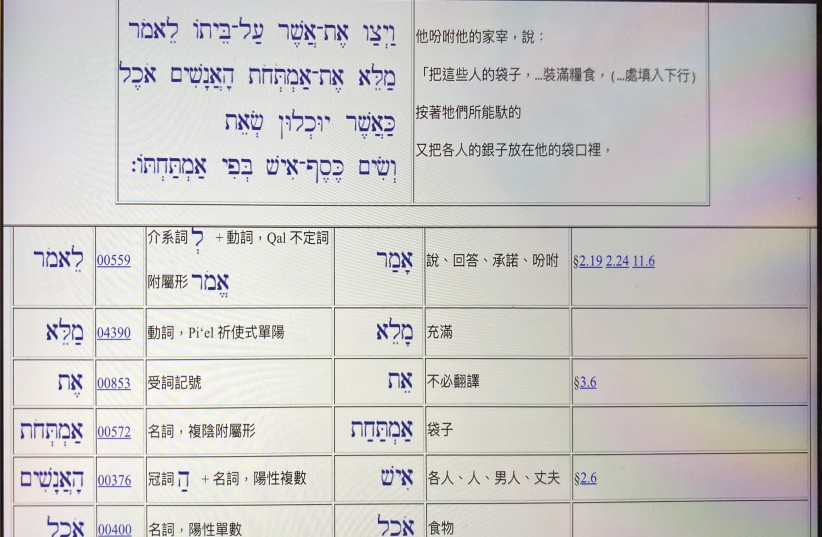
Everything changed when Wang attended a Christian conference in San Francisco, 725 km. from her home in San Diego. At the end of the conference, author Sandra Teplinsky spoke briefly about her book Why Care About Israel?: How the Jewish Nation Is Key to Unleashing God’s Blessings in the 21st Century.
Wang said she was “moved to tears listening to the author speak about Israel. I grew up with replacement theology. I was taught that every reference to Zion, Jerusalem or Israel in the Bible was a reference to the church. This book influenced me a lot. After I read her book, I understood more about the Old Testament.”
After the conference, Wang started to speak about Israel at the Prayer Center she runs in San Diego. “Every week, we read one chapter [from Teplinsky’s book] and we read the Bible. God was calling us to pray for Israel. We started to pray for the shalom of Yerushalayim (peace of Jerusalem).”
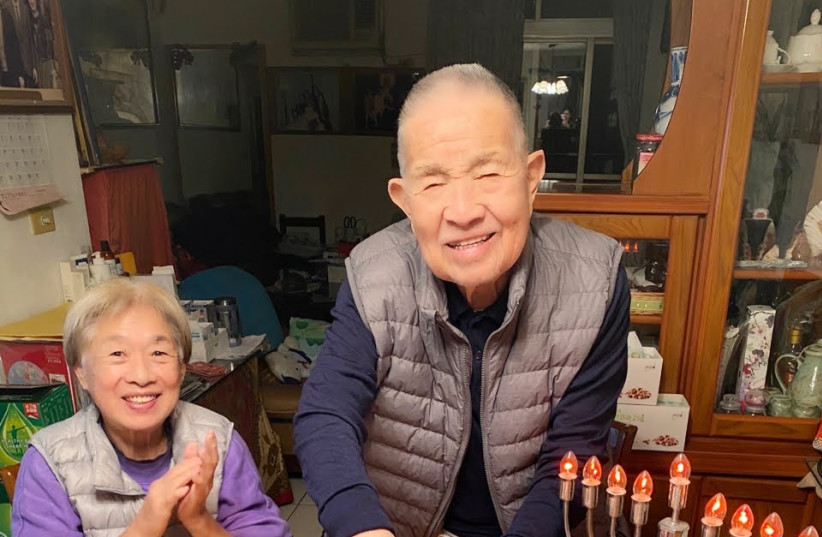
Around the same time, Wang started reading The Jerusalem Post online every day and began to share more about Israel with her group at the Prayer Center. When her focus shifted to praying for and learning about Israel, “most people left, but God brought more new people to the Prayer Center.”
When she first started the Prayer Center 20 years ago, “God sent me a message to name the Prayer Center a ‘House of Prayer for all Nations’.” In fulfillment of that intention, the Prayer Center attracted people from India, Malaysia, the US, Mexico, Brazil, Philippines, Korea and other nations. Initially, Wang spoke only Chinese and had someone translate her words to English. Gradually, her English improved to the point where she could speak without a translator.
Wang studies the weekly Torah portion word-by-word, and also reviews all other verses where each Hebrew word appears, using a website that includes a Hebrew-to-Chinese Bible translation. It takes her many hours to prepare.
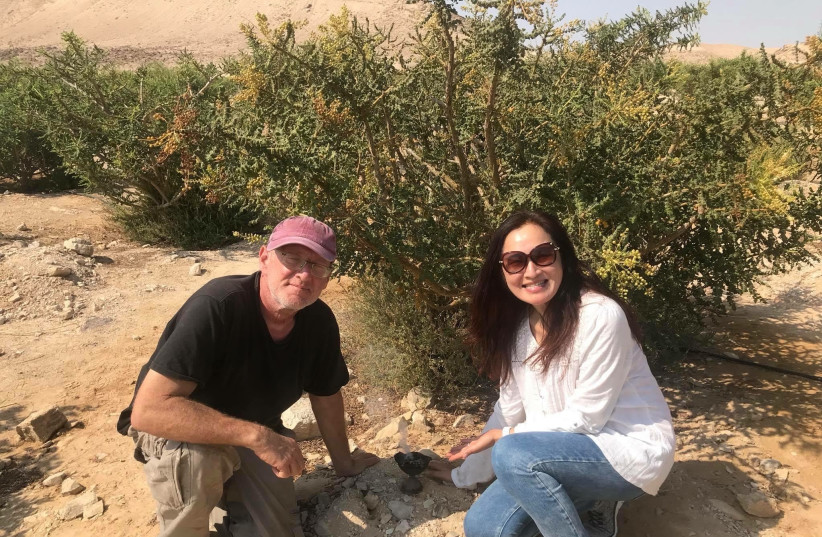
Beginning in 2014, she shared what she learned both at the Prayer Center, and in recordings which she made in Chinese. Her Chinese recordings of the weekly Torah portion spread through underground networks of Chinese Christians all over the world. Wang estimates that 10,000 to 20,000 people heard each of her recordings.
She stopped in 2019 to focus on her Hebrew studies but plans to eventually begin recording again, “with more knowledge of Hebrew and a deeper understanding.
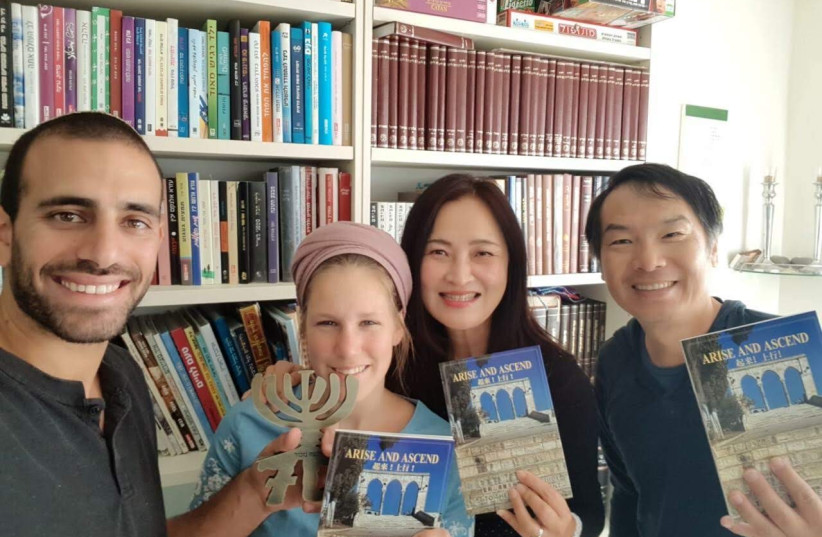
FOR 10 years prior to COVID, Wang and her husband David traveled to Israel twice a year and stayed for several months each time, initially booking vacation units and later in a series of rented apartments. She also brought formal tour groups of 40 to 50 people each to tour Israel and Jordan for two weeks.
On one of those trips, Wang brought her parents to Israel. During their first visit to the Western Wall, both of her parents burst into tears. Her father, especially, cried for an extended period and told his family, “I feel that I’ve finally come home.” That was the moment when Wang first learned about her family’s possible Jewish connection.
In 2014, Wang reported that she “got a message from God in a dream to rent an apartment in Jerusalem which must have a view of the Temple Mount.” Two years ago, on the eve of Yom Kippur, she found an apartment in the Talpiot neighborhood which matched her dream. The Wangs paid the rent for 18 months, even though COVID travel restrictions prevented them from actually coming.
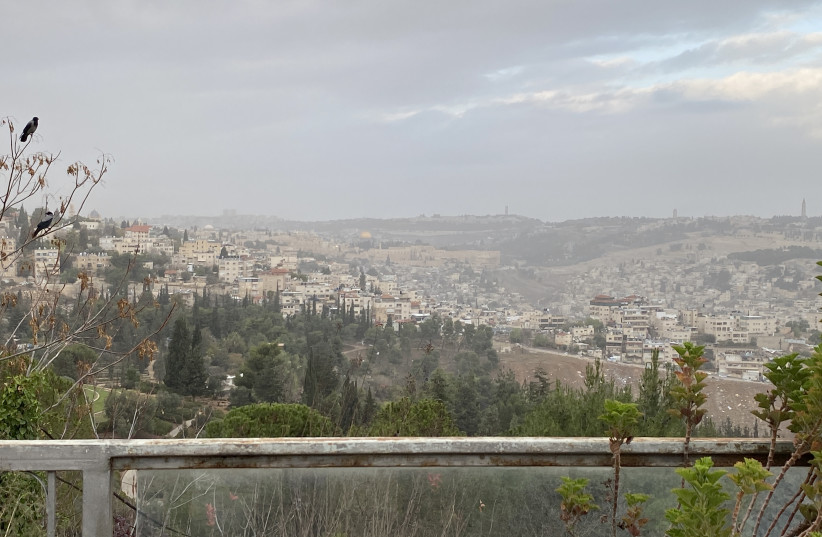
This academic year, she is here with her husband, on a student visa. When she is in Jerusalem, she spends most of her time studying Hebrew in class, diligently doing her ulpan homework and focusing on Bible study.
When she is back in San Diego, she is not just an informal ambassador for Israel; she also teaches about the Hebrew calendar. “I don’t believe that Jesus was born at Christmas. I’ve started to use the biblical calendar. That also changed me. I don’t recognize the days of Christmas and Easter at all anymore. I know they are wrong.”
Instead, Wang celebrates biblical holidays, albeit with a Christian flavor. “I’ve inspired other people to celebrate the Feasts of the Lord. More than 200 people come to our Prayer Center and we eat a Passover Seder meal together,” she reported.
Fortunately for Wang, both her husband and her elderly parents in Taiwan share her spiritual perspective. About her parents, Wang said, “They are so happy [with her choices]. This is their dream – to live in Israel – but they cannot fulfill that dream because of their ages and because of corona.
“They honor all the Feasts of the Lord. They are not really doing Christmas and Easter anymore. My brother lives in Taiwan and comes to celebrate together with them, but they are very lonely.”
Wang is especially interested in Temple Mount issues. “Seven years ago, God started calling me specifically to start praying for the Temple Mount. That’s when I started following news about the Temple Institute,” she shared.
As a result of her focus on the Temple Mount, Wang met former MK Rabbi Yehudah Glick at one of the annual reenactments of the water libation ceremony that was once part of the Temple service. During the reenactment, which took place on one of the intermediate days of Sukkot, the kohanim filled silver vessels with water from the Shiloach Spring at the bottom of the Temple Mount and carried them back up to the Temple Mount, accompanied by a crowd of spectators.
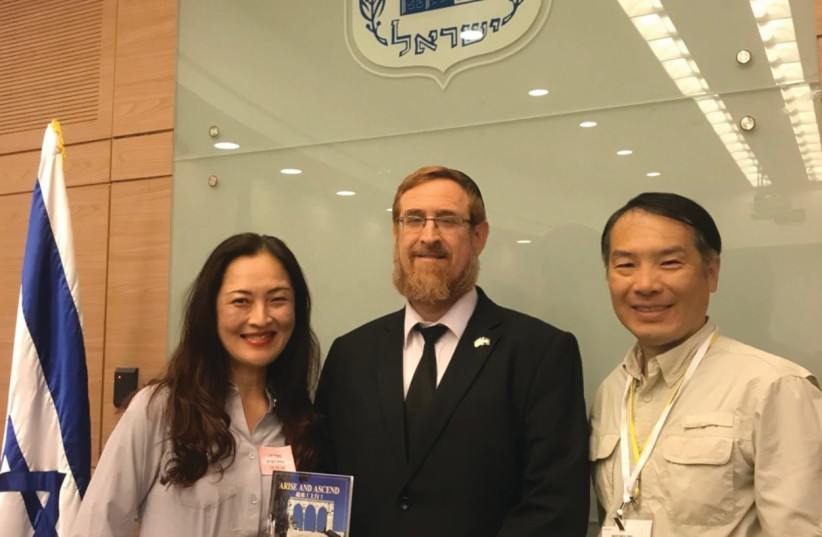
On the ascent, Glick walked beside her and asked about her interest in this ancient Temple ceremony. That’s how their relationship began. Noting her interest in the Temple Mount, Glick introduced her to the book Arise and Ascend: A Guide to Temple Mount by Meir Antopolsky, which was available in Hebrew, Russian and English.
“When the English version came out, I studied the book and I also asked everybody in the Prayer Center to get a copy. I added another weekly meeting to read the Arise and Ascend book, a chapter a week. I was also recording messages from the book in Chinese.”
Along with two other friends, Wang translated the book into Chinese and printed 5,000 copies in Taiwan. Copies of her Chinese translation were shipped from Taiwan to Chinese-speaking communities in America and Hong Kong; some copies were even smuggled into mainland China.
Part of the Picture
“When I read the Torah portion, I understand Israel is Israel and Jerusalem is Jerusalem. It’s not [the way they teach] replacement theology. I also know that I am part of the picture. I’m not outside,” she asserted.
Wang especially sees herself in these verses from Isaiah:
“And the foreigners who join with the Lord to serve Him and to love the name of the Lord, to be His servants, everyone who observes the Sabbath from profaning it and who holds fast to My covenant. I will bring them to My holy mount, and I will cause them to rejoice in My house of prayer, their burnt offerings and their sacrifices shall be acceptable upon My altar, for My house shall be called a house of prayer for all peoples (Isaiah 56:6-7).
“Not only the Jews, but also I am included in these verses. This is the reason why God is calling us to live in Jerusalem. For 10 years, we have been going back and forth between Jerusalem and San Diego. When I’m here in Jerusalem, sharing the messages, they are more powerful. I feel every word is so real to me, because I am in Jerusalem.”
Although she has many Jewish friends in Israel, Wang gets plenty of pushback for her ideas when she is back in San Diego. “Most of the churches are conservative, teaching very strong replacement theology. They call me a cult in their eyes. They warn their brothers and sisters not to come to my Prayer Center and if they come, they are in trouble with their churches and pastors. They don’t like me to talk about Feasts of the Bible. The worst pushback is from Chinese Christians in San Diego. They feel I am so weird.”
Wang reported that in California, she is, “only friends with the people who come to the Prayer Center. I was so popular until I started talking about Torah and Israel. I don’t care. In the beginning it hurt, but I come back to Jerusalem and I’m so satisfied, especially with the view of the Temple Mount. My heart is here.”
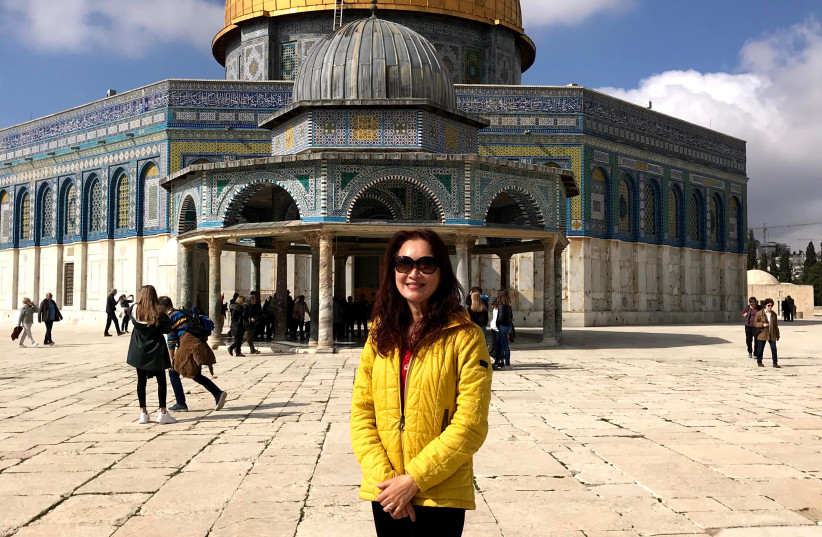
Hebrew Studies
Asked why she is investing so much effort in studying Hebrew, Wang said she is motivated by the biblical verse that speaks about how, in the future, the whole world will speak Hebrew. “For then I will convert the peoples to a pure language that all of them call in the name of the Lord, to worship Him of one accord” (Zephaniah 3:9).
“I really believe that in the Garden of Eden, God spoke to Adam and Eve in Hebrew. I really believe when Moshiach (Messiah) comes, everybody will speak Hebrew.
“Also, because when I share the Torah portion, I really want to understand it and read the Hebrew Bible in Hebrew. Sharing the Torah portion is very effective. Because of my messages, so many people have a desire to come to Israel,” she said.
“And I love God. If you love somebody, you want to speak the same language. I know Elohim (God) speaks Hebrew. When you love somebody, you have the motivation to learn his language.”
Wang, who says she now dreams in Hebrew, explained that, “Every time I go back to San Diego, I teach a Hebrew class with whatever Hebrew I learned. And [my students] are so happy. I want to give them the real message from the Hebrew language.”
It is challenging, but she will not be deterred. “Most people discourage me, saying I don’t need to work so hard. I cannot be satisfied with that kind of answer. I want to know Hebrew as soon as possible so I can communicate with Elohim in Hebrew. It’s like a secret language between me and Elohim,” she concluded.
